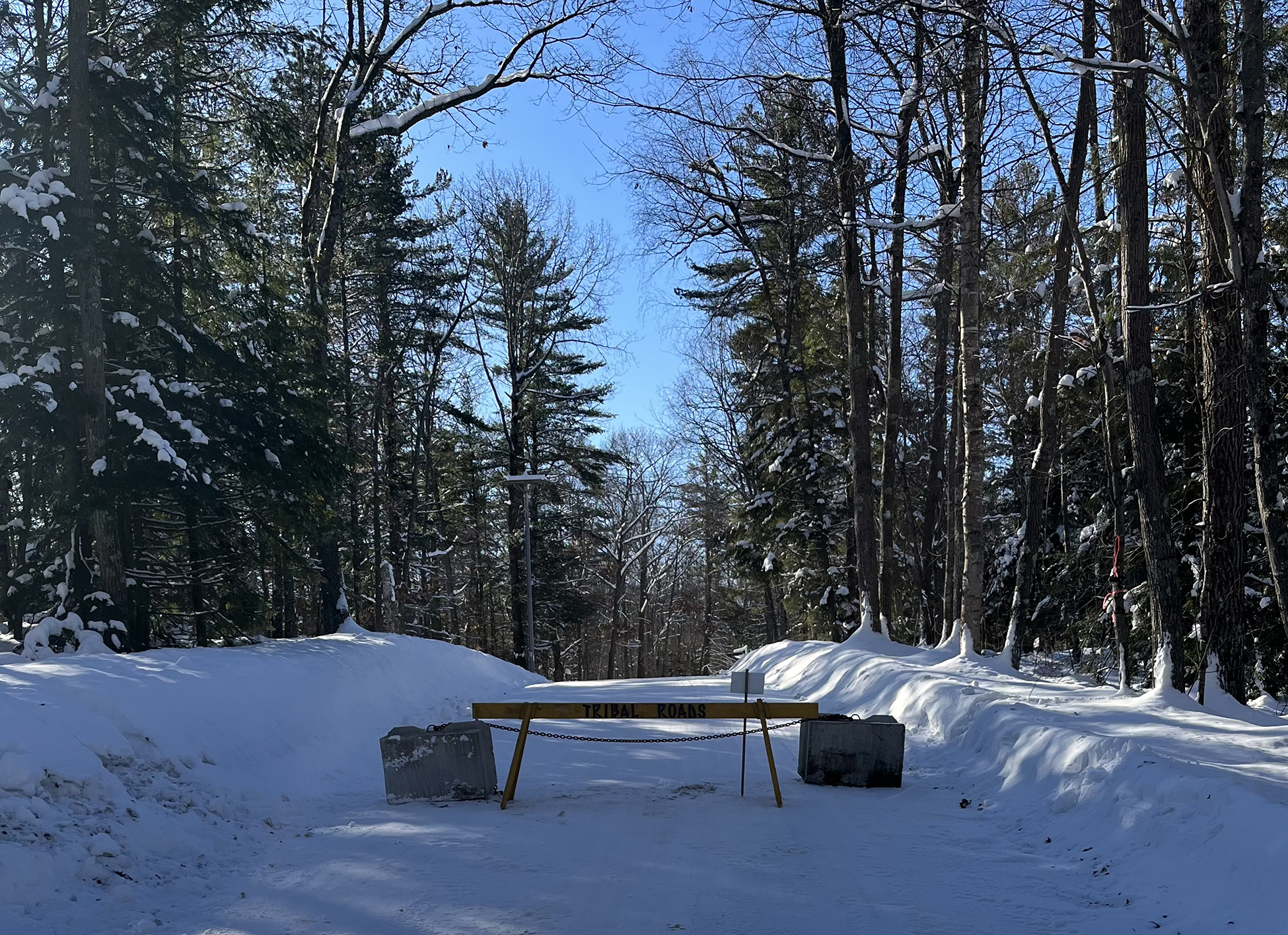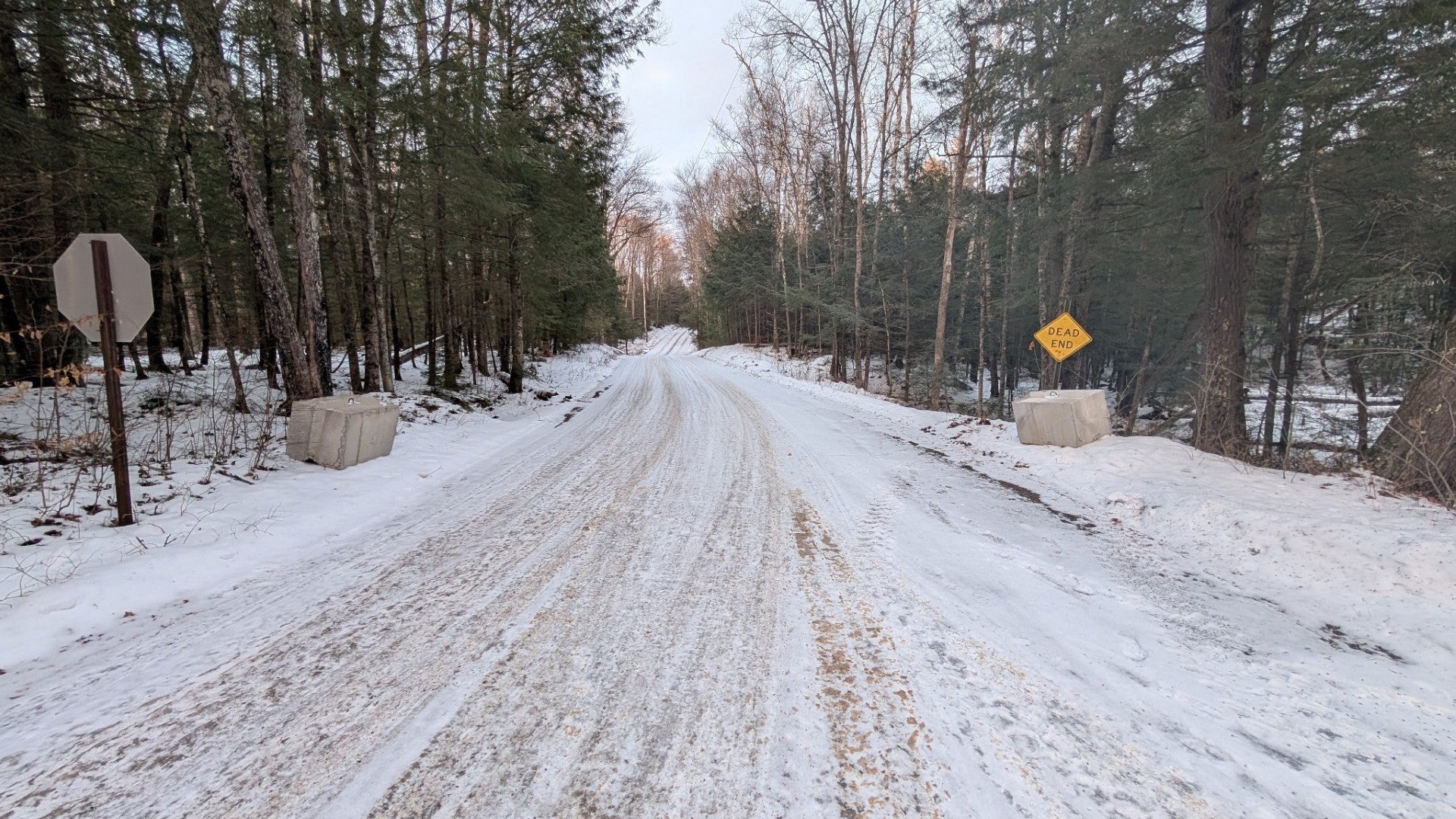A federal judge signaled Wednesday that he likely won’t stop a northern Wisconsin tribe from blocking roads on its reservation while non-tribal property owners pursue a lawsuit against the band.
The Lac du Flambeau Band of Lake Superior Chippewa is locked in an escalating dispute with the town of Lac Du Flambeau and a group of about 20 non-tribal property owners over road access on the reservation.
According to court documents, the tribe granted the town easements allowing public access to about 1.25 miles (2 kilometers) of roads on its 86,000-acre (35,000-hectare) reservation in the 1960s. The easements allowed non-tribal people to move onto the reservations and build homes there.
News with a little more humanity
WPR’s “Wisconsin Today” newsletter keeps you connected to the state you love without feeling overwhelmed. No paywall. No agenda. No corporate filter.
The easements expired about a decade ago but the town and the tribe haven’t been able to come to terms on renewing them. The tribe maintains that the title companies representing the property owners want permanent access but the tribe is willing to offer only 25-year leases.
Tribal council members in January finally voted to barricade the roads, permitting the homeowners to use the roads only to get food, prescriptions, propane and other services. The tribe demanded the title companies pay $20 million to remove the barricades and agree to a 25-year easement.
The property owners sued the tribal council in federal court in February, asking U.S. District Judge William Conley to force the tribe to remove the barricades. The tribe in March agreed to open the roads for 90 days in exchange for $60,000. That 90-day window closes on Tuesday. The U.S. Justice Department filed a separate lawsuit last week seeking damages from the town for trespassing on the reservation.
Conley held a hearing Wednesday on the landowners’ request for a preliminary injunction barring tribal officials from rebuilding the barricades before he makes a final decision in their case.
Andrew Adams III, an attorney representing the tribal council, told the judge the council voted on May 12 to continue to allow 30-day road access permits at a cost of $22,000 each but the town hasn’t paid anything yet. With the clocking ticking, the landowners’ attorney, David Peterson, urged Conley to grant the preliminary injunction and ensure the property owners can get to their homes after Tuesday.
“The homeowners are really stuck in the middle here (between the tribe and the town,)” Peterson said. “We are pawns.”
He argued that the tribal council didn’t have authority to block the roads in January because the roads were listed in the National Tribal Transportation Facilities Inventory. Tribes receive federal dollars to maintain roads listed in the inventory, qualifying the roads as public thoroughfares, Peterson contended.
But Conley pointed out that the tribe removed the roads from the inventory in March. Adams III said the tribe only ever received $88 for the roads. Conley said he didn’t see how such a small dollar amount would commit the tribe to granting public access and as of now the roads aren’t in the inventory.
Conley said that he believes tribal council members have sovereign immunity and can’t be sued. Sovereign immunity is a legal concept that states government entities can’t be sued without their consent. Peterson maintained that the concept doesn’t protect the council members because they acted beyond the scope of their authority when they blocked the roads since they were listed on the inventory as public avenues.
Conley was skeptical, saying the tribe doesn’t have to allow anyone to use their roads. All 12 members of the council voted to close the roads, he added. The landowners might have a beef with the three council members who actually helped erect the barricades but the other nine clearly enjoy sovereign immunity protections since all they did was vote, the judge said.
Conley promised he would issue a written opinion soon denying the injunction. In the meantime, he urged all the parties to negotiate an amicable settlement.
After the hearing adjourned, Assistant U.S. Attorney Samuel Gollis gathered all the attorneys around and tried to convince them to open negotiations. He said the parties are limited in what they could win in litigation but if they sat down and talked they could approach the problem with “maximum creativity.” Peterson and Adams agreed.
© Copyright 2025 by The Associated Press. All rights reserved. This material may not be published, broadcast, rewritten or redistributed.




